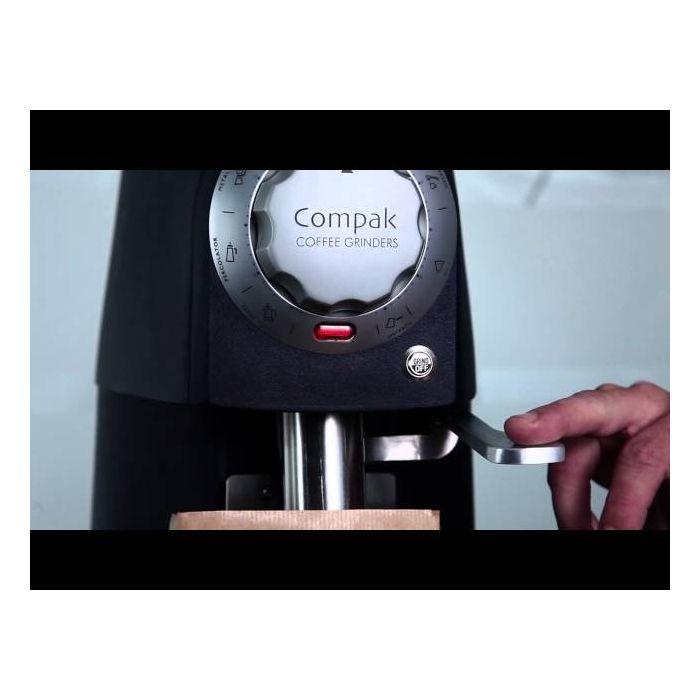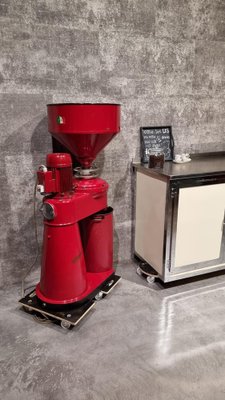Discover the Top Offers on Industrial Coffee Grinder Brands Now
Discover the Top Offers on Industrial Coffee Grinder Brands Now
Blog Article
Exactly How to Choose the Perfect Industrial Coffee Mill for Your Service
Choosing the ideal commercial coffee grinder for your business is a complex choice that calls for cautious factor to consider of numerous crucial factors. It is important to assess your certain grinding demands, including the quantity of coffee processed and the wanted work uniformity, as these elements straight impact flavor and consumer contentment. Additionally, comprehending the various kinds of mills available can significantly affect your functional efficiency. As you browse these considerations, one should also consider the implications of spending plan and upkeep. What various other factors could make or break your selection?
Assess Your Grinding Needs
When choosing an industrial coffee grinder, one need to initially analyze their grinding demands to ensure optimal performance and consistency. This initial evaluation involves understanding the volume of coffee to be processed daily, as well as the desired grind size for various brewing methods. A high-capacity grinder may be required for companies serving big quantities of coffee, while smaller operations could find a more small model sufficient.
Additionally, it is vital to think about the kinds of coffee beans being used, as various beans might need particular grinding techniques to achieve the ideal taste profile. For example, oily beans could demand a grinder made to deal with such qualities without clumping or overheating.
Another critical variable is the needed work uniformity. Specialty coffee organizations commonly demand precise work sizes to boost extraction and taste, making it crucial to choose a mill that can deliver consistent results. Ultimately, examining the available room and electrical needs will aid in choosing a grinder that fits effortlessly into your functional workflow. By extensively examining these factors, services can make informed choices that align with their coffee grinding demands, ultimately bring about a remarkable item and pleased consumers.
Understand Grinder Types
Comprehending the different sorts of commercial coffee mills is crucial for making a notified choice that satisfies details operational requirements. There are mainly two classifications of mills: blade grinders and burr grinders.
Blade grinders use spinning blades to chop the coffee beans, resulting in an inconsistent grind size - Industrial Coffee Grinder. While they may be more affordable, they are frequently not suitable for commercial applications where precision is vital
On the other hand, burr grinders provide a more uniform work by squashing the beans in between 2 surfaces. They can be further categorized right into level burr and cone-shaped burr grinders. Flat burr grinders supply a regular work size and are usually favored for coffee prep work, while cone-shaped burr grinders are versatile and can take care of a variety of mixture methods, from coffee to French press.
When picking a grinder, consider the specific demands of your service, including desired work consistency, production quantity, and the kinds of coffee drinks you intend to provide - Industrial Coffee Grinder. Each grinder kind has its constraints and benefits, so understanding these subtleties allows informed decision-making that lines up with operational objectives
Evaluate Grind Dimension Consistency
Achieving grind dimension consistency is important for producing high-quality coffee, as variants in particle dimension can considerably impact extraction and taste. When choosing a commercial coffee grinder, it is crucial to examine how well the maker preserves harmony in grind dimension across different sets. Irregular grind sizes can bring about unequal removal, resulting in a mug that might taste excessively bitter or weak.
To evaluate work dimension consistency, take into consideration grinders with functions such as flexible grind setups and high-quality burrs. Burr mills, in certain, stand out in generating uniform bit dimensions contrasted to blade grinders. The material and shape of the burrs play an essential role, with stainless steel and ceramic choices offering durability and precision.

Take Into Consideration Production Capability
In the fast-paced globe of coffee production, thinking about manufacturing ability is paramount for services intending to satisfy need without sacrificing top quality. The production capability of a commercial coffee mill straight affects a business's capacity to satisfy orders efficiently, manage inventory, and reply to fluctuating market patterns.
When evaluating production capability, it is vital to assess the grinder's result rate, commonly measured in pounds per hour. This measurement should align with your company's forecasted sales quantity and development targets. For instance, a café with a high turn over might call for a mill that can refine a number of hundred extra pounds daily, while a smaller operation could be sufficient with a reduced capability model.
Furthermore, consider the sort of coffee being processed. Various beans and blends may affect grinding speed and efficiency, requiring a grinder efficient in dealing with varied production needs. It's additionally worth factoring in the mill's capability to keep consistent top quality under high outcome conditions, as any kind of variations can my explanation affect the end product.
Eventually, selecting a mill that matches your company's manufacturing capacity will certainly guarantee you stay receptive and competitive to client expectations.

Budget Plan and Upkeep Elements
When examining the right industrial coffee grinder, maintenance and spending plan aspects play a substantial role in the overall decision-making process,. A preliminary financial investment in a top quality grinder can produce lasting advantages, yet it's vital to develop a clear spending plan that straightens with Read Full Article your business's operational needs. Consider both the purchase cost and possible functional expenses, such as power usage and substitute components.
Industrial coffee grinders need routine upkeep to ensure optimum performance and longevity. Evaluate the supplier's suggestions for maintenance, consisting of cleaning schedules and components replacement, as these will influence long-lasting functional expenses.

Purchasing a mill that is durable yet very easy to maintain can conserve money gradually. While lower-priced options might be tempting, they may sustain higher upkeep costs and minimized performance. Eventually, stabilizing initial expenses with long-term maintenance and functional efficiency will guide you to the finest selection for your company's coffee grinding demands.
Conclusion
Choosing the suitable commercial coffee mill demands a comprehensive assessment of grinding requirements, grinder types, grind size uniformity, production capacity, and budgetary considerations. An appropriate mill not just boosts the top quality of the coffee created however likewise contributes to the overall success and success of the enterprise.
Specialty coffee businesses often demand exact grind sizes to enhance removal and taste, making it crucial to select a grinder that can supply consistent results. Flat burr mills use a constant grind size and are typically preferred for coffee prep work, while conical burr grinders are functional and can manage a variety of brew approaches, from coffee to French press.
When choosing an industrial coffee mill, it is critical to examine exactly how well the device preserves uniformity in work dimension across see here various batches. Burr mills, in specific, excel in generating uniform fragment sizes compared to blade grinders.Selecting the excellent industrial coffee grinder necessitates a detailed analysis of grinding demands, grinder kinds, grind size uniformity, production capacity, and monetary considerations.
Report this page